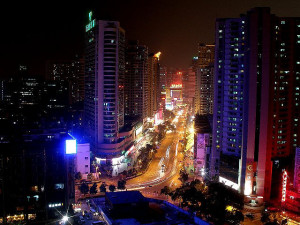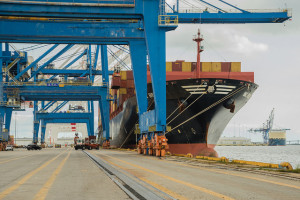By Peter Ward August 28, 2015
Mutual Fund Valuation Mayhem

A computer glitch in a Bank of New York accounting system made it difficult to price mutual funds and ETFs. (©r2hox)
Bank of New York Mellon struggled to fix a computer glitch this week that delayed billions of dollars of custody assets from being valued. Over the weekend an accounting system BNY Mellon relies on to calculate the prices of mutual funds and exchange traded funds broke down, and was still not fully operational by Wednesday.
The glitch made it more costly to trade ETFs, funds that track indexes such as the S&P 500 and NASDAQ-100. BNY Mellon now faces a backlog of funds to price.
The fallout from the glitch may have only just begun, according to fund industry attorneys who spoke to The Wall Street Journal, which reports that major challenges could arrive in the coming weeks, as fund companies and BNY Mellon decide who is liable if investors traded using false prices.
The glitch was found in a SunGard system called InvestOne, which is used to manage more than $28 trillion in assets. SunGard is currently being bought by rival software provider Fidelity National Information Services and did not comment on the matter this week.
The Wall Street Journal published a list of funds affected by pricing errors on Wednesday.
Uncertain Future for Tech Startup Giants

Pinterest is among the tech startup giants some analysts worry will not be able to launch IPOs. ©Maria Elena
The number of private technology companies valued at $1 billion grew to 131 on Monday, but investors and analysts warned that these valuations might not stick amid a global correction in markets. Some of the boldest startups might be forced to take buyouts rather than reap windfalls in the public markets with blowout IPOs.
“The focus is on how hard it is going to be for some very high-end stuff to go public,” an unnamed venture capitalist told The Guardian. “How does Pinterest go public now? Dropbox? Square?” Other venture capitalist quoted in The Guardian article say the result may be an increase in merger and acquisition activity, as the ‘unicorn’ startups still represent a fairly low price tag for larger companies looking to buy into technology.
Global markets have faltered this week, with China’s stock market suffering its biggest one-day fall since 2007 on Monday. That decline was felt around the world, as Western stock markets reacted negatively. Commodity prices also fell to levels not seen since 1999. By the end of the week U.S. markets had recovered, but emerging markets were still struggling.
Warner Bros. Eyes Booming Chinese Movie Market

China’s film business is booming. ©Jonathan Kos-Read
Time Warner’s movie studio Warner Bros. is looking to expand into the Chinese movie market, The Wall Street Journal reported reported this week. The company is reportedly in talks with the government-backed investment fund China Media Capital to form a joint venture which would create films locally in China, according to The Journal.
Despite recent weakness in the Chinese economy, the country’s film industry is booming. So far this year Chinese consumers have spent $4.2 billion going to the movies, a 64% increase from the same point last year, according to Rentrak, an entertainment research company. Analysts predict the country will become the global box office leader – ahead of the U.S. – by 2020. Rentrak also says by 2030 China’s annual ticket sales could double that of North America’s movie industry.
Locally produced movies account for more than half of this year’s top grossing films in China. Hollywood has acknowledged the importance of the Chinese market in recent years, by altering scripts and locations to appeal to Chinese moviegoers.
Warner Bros. declined to comment on the reports.
China’s Counterfeit Goldman Sachs

Shenzen, China. ©Jennifer
China is famous for its high-end luxury counterfeits, from Rolex watches to Louis Vuitton handbags. Now some Chinese businessmen seem to have created a counterfeit Goldman Sachs, Bloomberg reported on Thursday. It is called Goldman Sachs (Shenzhen) Financial Leasing Co.. It is based in Shenzen.
Goldman Sachs says it is looking into its Chinese namesake, but it’s unlikely the bank will be able to force the company to change its name under Chinese trademark law. Former basketball player Michael Jordan lost a case against a Chinese sports company that was using his name, while Apple was forced to pay $60 million to settle a trademark dispute with a Chinese company attempting to block the sale of iPads in the country.
“It’s notoriously difficult for an overseas claimant to persuade the Chinese courts that there has been trademark infringement,” Paul Haswell, a Hong Kong-based partner at law firm Pinsent Masons told Bloomberg. “There’s still a practice of whoever registers first wins.”
When Bloomberg called the fake Goldman Sachs, a receptionist said that the company was not affiliated with the U.S. financial institution, and said it was the first time anyone had asked her that question. Really?
The Chinese Goldman Sachs has been linked to a group of gambling companies controlled by the family of Cheung Chi-tai by a U.S. casino workers’ union, which sent a letter to the Chinese government requesting that it investigate the financial leasing company. Cheung Chi-tai is under investigation for three counts of money laundering and is alleged to have ties to organized crime. Cheung Chi-tai operates Macau casino junkets, which bring Chinese high rolling gamblers to Macau, where gambling is legal.
Mapping The World’s Trade

The port of Baltimore, MD. ©U.S. Department of Agriculture
On Tuesday, Vice magazine’s Motherboard highlighted an incredible piece of data visualization, created by two students at Harvard Kennedy School. The Globe of Economic Complexity is an interactive tool which allows users to see the world’s $15.3 trillion of trade through 3D visuals and a simple to use interface. The tool maps 153,000 small dots, each representing $100 million of exports, and colored to represent different industries.
“We wanted to find a novel way to convey the scale, diversity, and inequality of world economies using new 3D web technologies, to make these massive amounts of international trade beautiful and understandable,” Owen Cornec, one of the creators told Motherboard.
By exploring the map, users can get a very broad comprehensive view of which countries export what, where these exports go, and how much each export is moved around the world. The map was inspired by the Atlas of Economic Complexity, which is used by policymakers to determine the health of trade in different countries. There is a huge amount of critical economic data efficiently compiled into an easy to use 3D graphic, providing a tool for economists, journalists, historians and casual readers.
The data was sourced from Harvard University’s Center for International Development’s 2012 world export research.
This entry was posted on Friday, August 28th, 2015 at 5:45 pm. It is filed under Week in Review and tagged with Bank of New York Mellon, Goldman Sachs, tech startup giant, tech unicorn, Warner Bros.. You can follow any responses to this entry through the RSS 2.0 feed.
Comments are closed.
